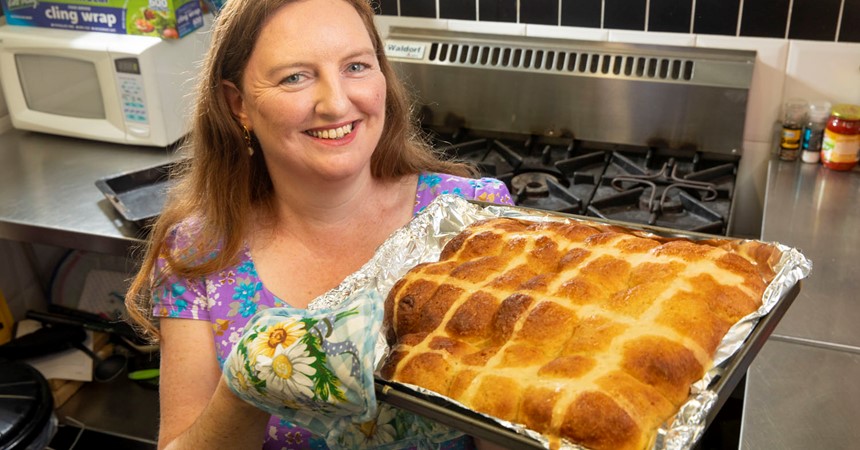On Good Friday every year, my family eats fish and hot cross buns. It is a set Catholic tradition in many households, and I could not imagine Easter without it.
I began to wonder how many years the hot cross bun has been associated with Easter. I discovered there are many theories on where the hot cross bun came from.
One theory dates back to the 14th century when an Anglican monk baked the buns at St Albans Abbey, England and called them the “Alban bun”. He then distributed them to the poor on Good Friday. They soon gained popularity around England and became a symbol of the Easter weekend.
In 1582, bakers in England were banned from selling them. This was because of superstitions that the buns carried medicinal or magical properties.
In the late 16th century, Queen Elizabeth I passed a law permitting hot cross buns only to be sold at Easter and Christmas.
The first recorded reference to hot cross buns was in Poor Robin’s Almanack in the 1700s. It read: “Good Friday comes this month, the old woman runs. With one or two a penny hot cross buns.”
It is amazing that the tradition has continued for so long and will most likely keep going.
We usually buy our hot cross buns, but I was surprised at how easy they are to make. Just be aware of the time it takes for the dough to rise.
This recipe is a traditional one, but it can be altered to include different ingredients. I have made buns replacing the currants with ½ cup choc chips. These are added into the dough just before it is divided into portions. I enjoyed making the buns, and hope you will too.
Hot cross buns
Ingredients
- 4 cups plain flour
- 2 x 7g sachets dried yeast
- 1/4 cup caster sugar
- 1 1/2 teaspoons mixed spice
- pinch of salt
- 1 ½ cups currants
- 40g slightly salted butter
- 300ml milk
- 2 eggs, lightly beaten
Flour paste
- 1/2 cup plain flour
- 4 to 5 tablespoons water
Glaze
- 1/3 cup water
- 2 tablespoons caster sugar or icing sugar
Method
- Step 1
Combine flour, yeast, sugar, mixed spice, currants, and salt in a large bowl. Melt butter in a small saucepan over medium heat. Add milk. Heat for 1 minute, or until lukewarm. Add warm milk mixture and eggs to dry mixture. Mix until dough almost comes together. Use clean hands to finish mixing to form a soft dough.
- Step 2
Turn dough out onto a floured surface. Knead for 10 minutes, or until dough is smooth. Place into a lightly oiled bowl. Cover with plastic wrap. Set aside in a warm place for 1 to 1 ½ hours, or until dough doubles in size.
- Step 3
Line a large baking tray with non-stick baking paper. Punch dough down to its original size. Knead for 30 seconds on a lightly floured surface until smooth. Divide into 12 even portions. Shape each portion into a ball. Place balls onto lined tray, about 1cm apart. Cover with plastic wrap. Set aside in a warm place for 30 minutes, or until buns double in size. Preheat oven to 190°C.
- Step 4
Make flour paste: Mix flour and water together in a small bowl until smooth, adding a little more water if paste is too thick. Spoon into a small snap-lock bag. Snip off 1 corner of bag. Pipe flour paste over tops of buns to form crosses. Bake for 25 minutes, or until buns are cooked through.
- Step 5
Make glaze: Place water and sugar into a small saucepan over low heat. Stir until sugar dissolves. Boil for 3-4 minutes. Brush warm glaze over warm hot cross buns. Serve warm or at room temperature.























































































